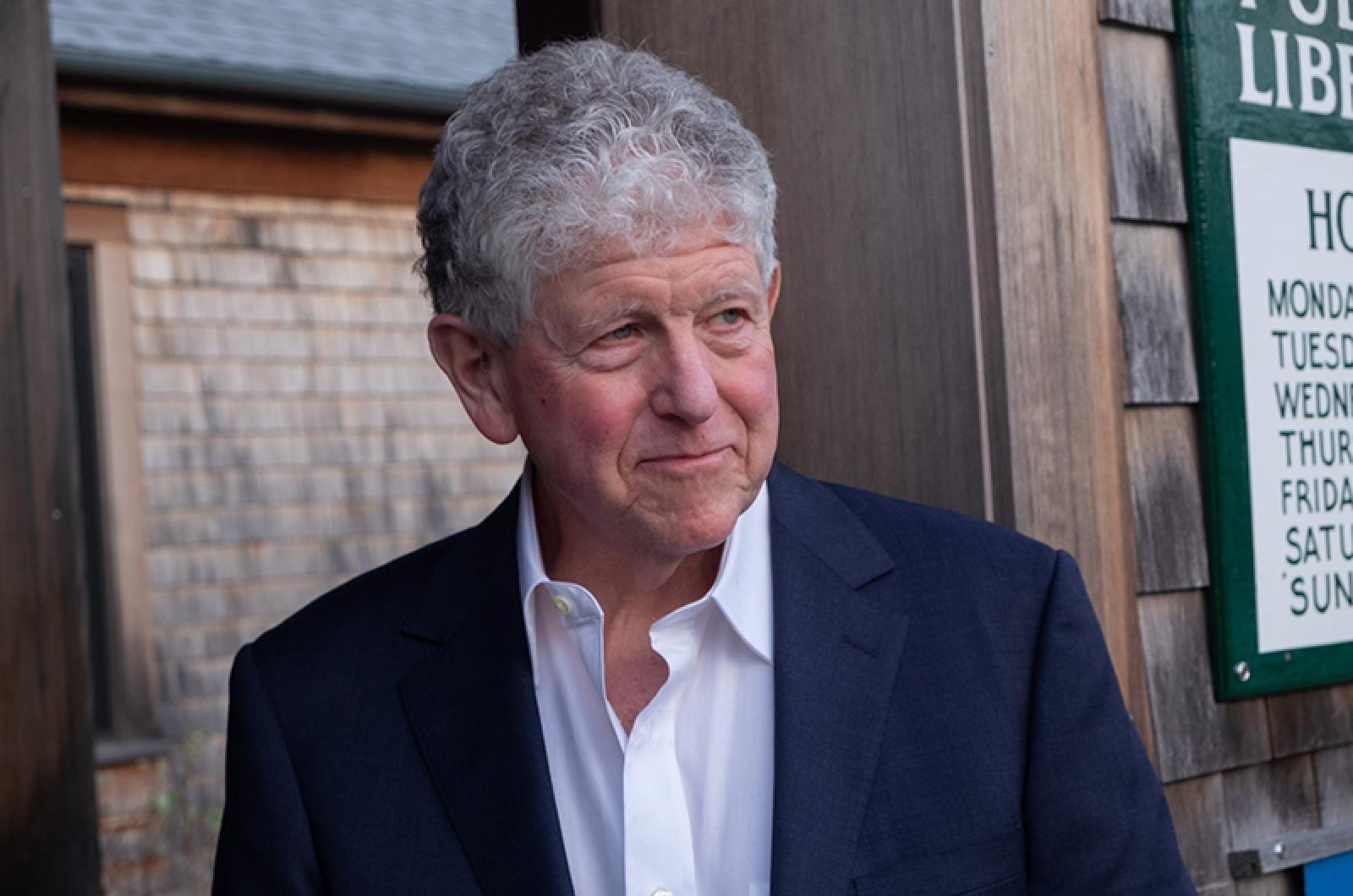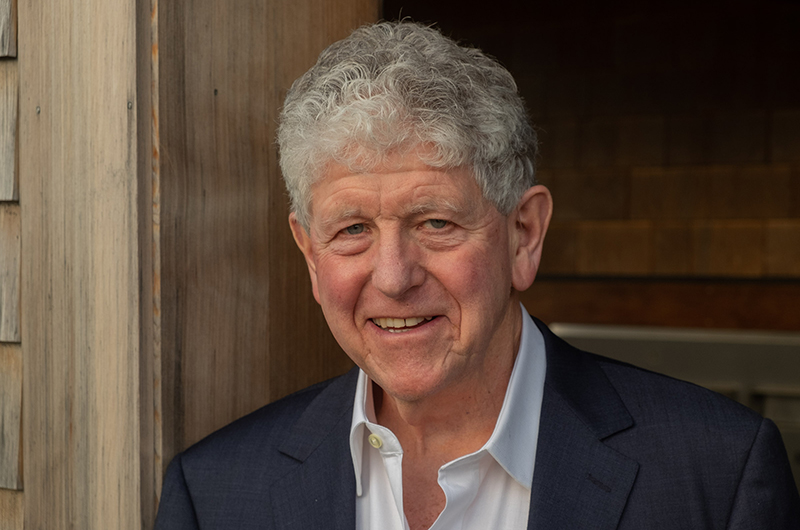Fred Franzia, the mastermind behind America’s best selling Charles Shaw wines, is notoriously secretive about his success. Since launching the business in 2002, Mr. Franzia has sold over one billion bottles of wine exclusively at the supermarket Trader Joe’s for just $1.99 each, causing it to soar in popularity and gain the moniker “Two-Buck Chuck.” For years, writers have sought out his story, with very few allowed access.
One of them is Oak Bluffs writer Frank Bergon, author of the new book Two-Buck Chuck & The Marlboro Man: The New Old West. At a book launch recently at the West Tisbury Library, Mr. Bergon shared stories from the book and offered insight into his reporting, including several conversations with the mysterious Mr. Franzia, like how he once won winery of the year in front of a room of critics who booed him and called him the “Scourge of Napa Valley.”
“Nobody knows how he did it,” said Mr. Bergon. “So how did he do it? This is the story I tell in my book. It helps that I went to high school with him.”
Mr. Bergon said he began researching the book in 2011 during bi-annual summer trips to the high deserts of California’s San Joaquin Valley where he was raised on a ranch. His mother was Basque along with many of his friends, a topic that has been his muse across 11 books of fiction and nonfiction. Mr. Bergon said the book is a new style for him, exploring his relationships to the people and culture of the San Joaquin Valley and weaving them together to showcase the “True West.”
Paired with Two-Buck Chuck is the story of the real Marlboro Man, Darrell Winfield, a rugged cowboy regarded as one of the most photographed men in history. Starting in 1968, Mr. Winfield was the face of Marlboro cigarettes for over 40 years in advertisements showing him roping cattle with a cigarette in hand to the theme from The Magnificent Seven. The ad agency behind the campaign, Leo Burnett, would not grant requests for interviews adding to his mythical allure. There was even an eight-part feature in the Denver Post in 1990 titled, “In Search of the Marlboro Man.”
“His image represented more than just selling cigarettes,” said Mr. Bergon. “It had something to do with the myth of the West, and even the myth of America. But nobody knew who he was.”
Mr. Bergon again had unique access to his subject, having been friends with the Marlboro Man ever since Mr. Winfield leased Mr. Bergon’s grandmother’s feedlot in 1962. In the book Mr. Bergon details the family man, prankster and working cowboy who could hold up a $3 million photo shoot because he was too busy at the ranch. Mr. Bergon said Mr. Winfield’s personality is best exemplified in a quote that still hangs on the walls of the Leo Burnett agency after Mr. Winfield’s death from stroke complications in 2015: “A cowboy is a guy who fetches life.”
“A true cowboy cares about nothing more than just being a cowboy,” said Mr. Bergon.
Though wine and cowboys seem like strange bedfellows for a book, Mr. Bergon said the stories of Mr. Franzia and Mr. Winfield are linked because of the pair’s shared values, esteemed by western pioneers old and new, and in Basque culture.
“For two people that are so different...they shared much in terms of values, work ethic and not really caring about public adulation,” he said.
He said that though the industries and people of the San Joaquin Valley continue to change, the values of perseverance, endurance and even a bit of stubbornness remain in the New West.
At the reading, Mr. Bergon finished with a sentiment from Mr. Winfield, a reminder that while everything changes, a spirit of optimism is what the West is really about.
“Everyday is a great day,” he said. “Some are even better.”





Comments (1)
Comments
Comment policy »